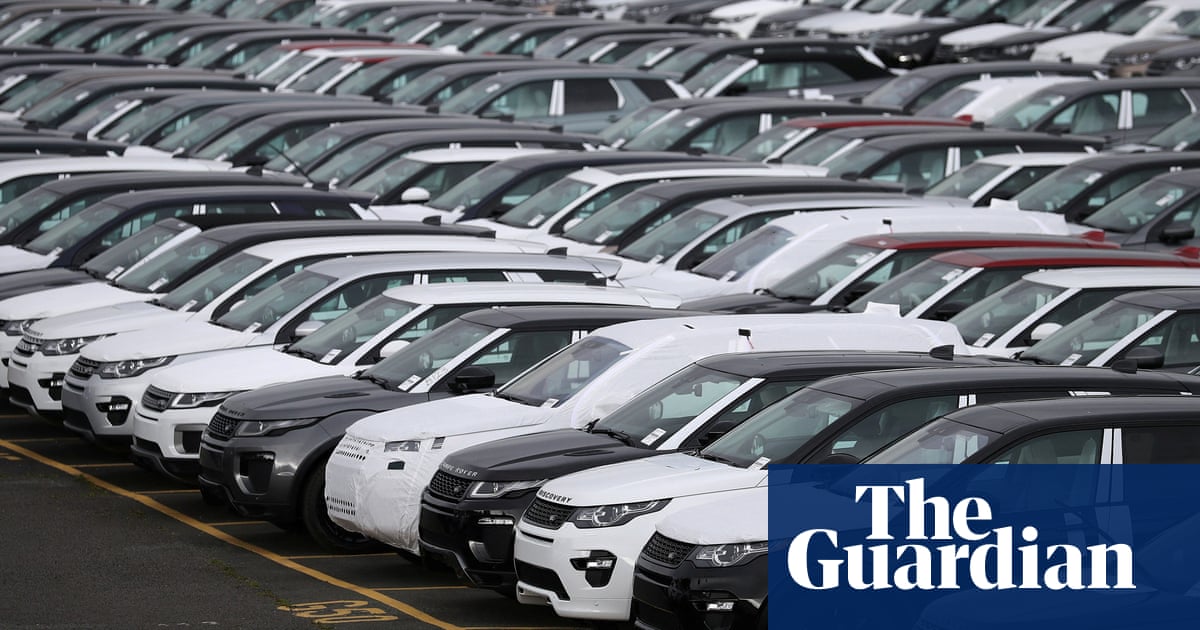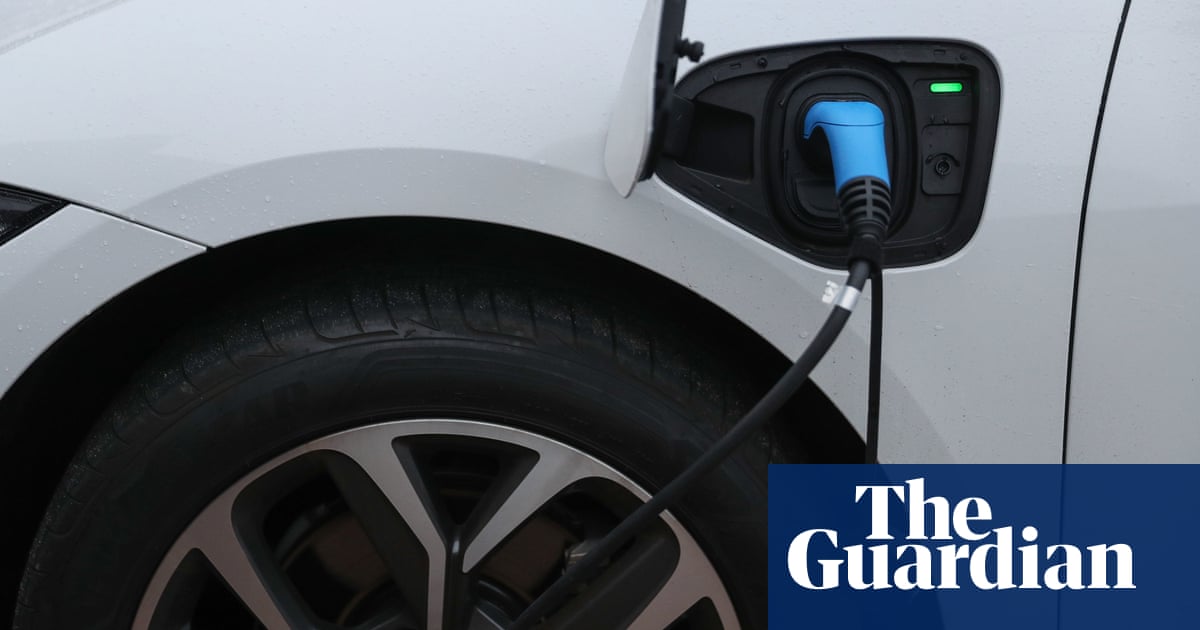
Jaguar Land Rover (JLR) is to temporarily shut down production at two of its main UK factories because of a shortage of computer chips, in the latest sign of the difficulties facing the global car industry during the pandemic.
The company, which is owned by the Indian conglomerate Tata and has the UK’s largest automotive manufacturing operation, confirmed to the Guardian it would have a “limited period of non-production” at its plants in Castle Bromwich in the West Midlands and Halewood on Merseyside – where together nearly 6,000 workers are employed – starting on Monday.
It is understood the shutdown is scheduled to last at least a week, although the company will continue to monitor its chip supply before committing to a reopening date.
The shutdown underlines the struggles of carmakers across the world to secure a supply of computer chips, also known as semiconductors, amid a global shortage that has affected companies from Microsoft and Sony, the makers of the Xbox and PlayStation games consoles, to the phone manufacturer Samsung and cryptocurrency “miners” that need computer chips to solve puzzles that earn them bitcoin and other digital assets.
Chipmakers in South Korea and Taiwan were taken by surprise by the bounceback in demand after the pandemic initially hit sales, and the complex foundries that make them are expensive to build if orders rise.
The automotive industry is used to running lean “just-in-time” supply chains that minimise the amount of cash tied up in factory warehouses. However, the global nature of the chip shortage has strained carmakers as they compete directly with tech firms for supply.
“The automotive industry doesn’t count for much in the semiconductors industry,” complained a source at another car manufacturer.
The Mercedes-Benz maker, Daimler, said on Thursday that 18,500 workers at two German plants would be moved to shortened hours to cope with the shortages.
Meanwhile the French carmaker Renault said the industry was at the peak of its difficulties in securing chip supplies but warned disruption could continue for months over the summer.
Almost every major carmaker has been affected by the shortages, with rolling production stops at automotive factories ranging from Germany’s Volkswagen, the world’s largest carmaker, and others including South Korea’s Hyundai, and Japan’s Nissan and Honda, including the latter’s UK factory.
For JLR the chip shortage has added to the issues facing the new chief executive, Thierry Bolloré, including previous factory shutdowns linked to coronavirus disruption. Bolloré has launched an ambitious effort to catch up on electric cars. In February he said the Jaguar brand would only sell battery electric cars by 2025.
JLR is still considering whether employees at the affected factories, including 1,900 at Castle Bromwich and 3,800 at Halewood, will be put on the government’s furlough scheme. The scheme, which pays up to 80% of workers’ salaries if they are unable to work because of Covid-19, is expected to run until the end of September.
The models affected by the temporary shutdown will be the Jaguar XE and XF executive cars and the F-Type sports car, all built at Castle Bromwich, and Halewood’s Discovery Sport and Range Rover Evoque.
Manufacturing will continue at JLR’s Solihull plant, which makes various Range Rover models plus the Jaguar F-Pace SUV. JLR’s international factories in Slovakia – where its new Defender is made – Brazil and China are as yet unaffected.
A JLR spokesperson said: “Like other automotive manufacturers, we are currently experiencing some Covid-19 supply chain disruption, including the global availability of semiconductors, which is having an impact on our production schedules and our ability to meet global demand for some of our vehicles.
“We are working closely with affected suppliers to resolve the issues and minimise the impact on customer orders wherever possible.”
Why is there a global chip shortage?
Digital speedometers tell you how fast your car is travelling, but they also tell a tale of technological progress. Computer chips are now so cheap they are used for the most mundane tasks, with as many as 100 scattered throughout cars in everything from driver assistance to fuel intakes.
Now shortages are causing carmakers to scramble to save semiconductors. The French brand Peugeot, owned by Stellantis, this week said it had replaced newer digital speedometers with analogue versions on its 308 line.
Industries reliant on silicon – ranging from smartphone manufacturers to personal computers to data centres – have been feeling the pinch since late last year as the strength of the global economic bounceback took many by surprise. Chips are increasingly being used in products ranging from lightbulbs and smart devices from thermostats to toothbrushes.
Rico Luman and Timme Spakman, economists at the ING investment bank this month wrote that locked-down consumers unable to spend on restaurants had instead bought tech products such as 5G-capable phones, as well as home office devices, fuelling demand for chips.
Many carmakers cut back orders of semiconductors when the pandemic first hit in anticipation of a long sales drought. That left them at the back of the queue when a surprising number of consumers wanted new cars.
The chip industry has been through boom and near bust before, so has been wary of carrying spare capacity. A fire at one Japanese chipmaker last month and shutdowns at four facilities in the Texas freeze did not help.
Investments in new foundries are being made. Taiwan Semiconductor Manufacturing Co on Thursday approved $2.9bn (£2.1bn) in spending on new capacity. However, it will take months for them to match supply to demand.












